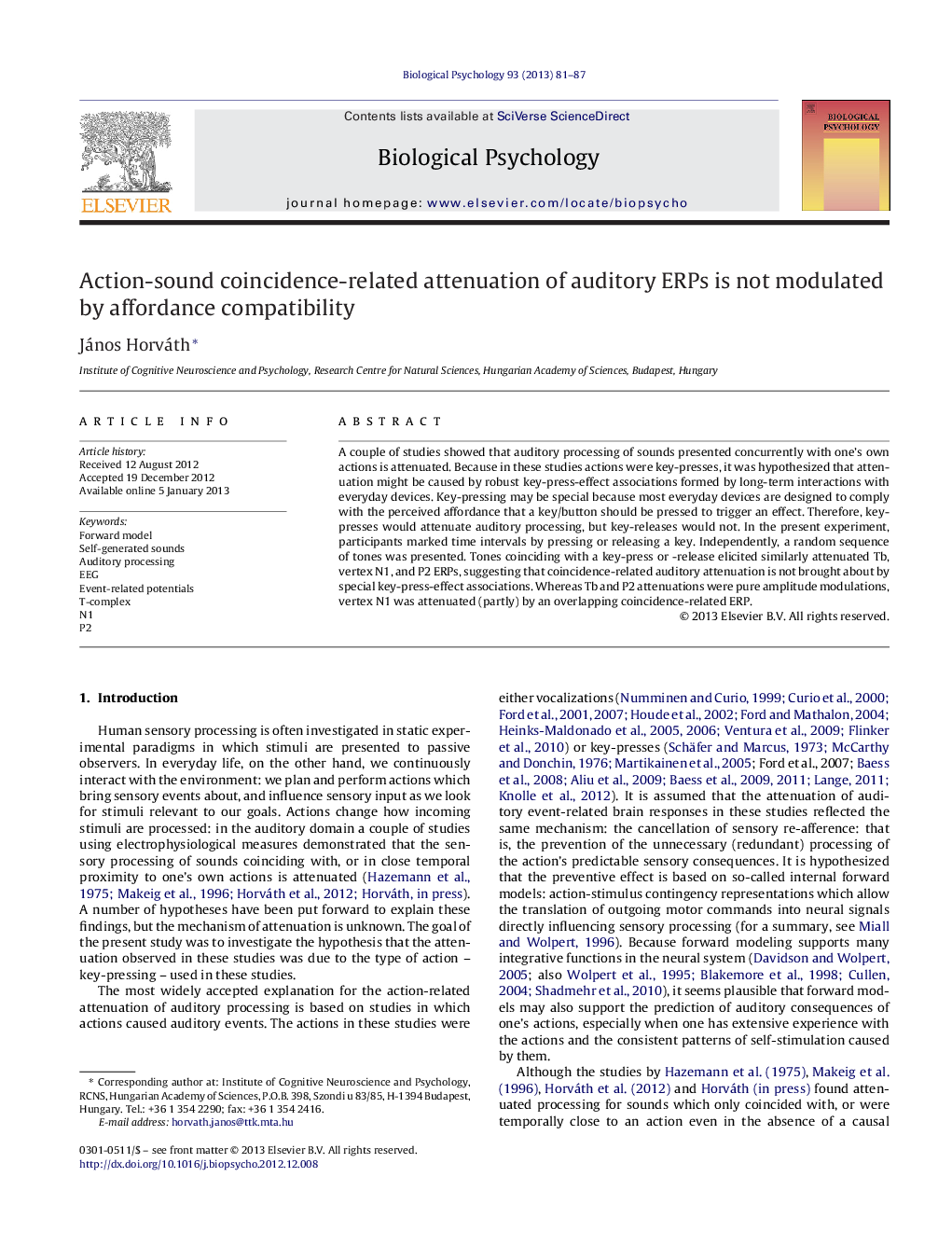| Article ID | Journal | Published Year | Pages | File Type |
|---|---|---|---|---|
| 920985 | Biological Psychology | 2013 | 7 Pages |
A couple of studies showed that auditory processing of sounds presented concurrently with one's own actions is attenuated. Because in these studies actions were key-presses, it was hypothesized that attenuation might be caused by robust key-press-effect associations formed by long-term interactions with everyday devices. Key-pressing may be special because most everyday devices are designed to comply with the perceived affordance that a key/button should be pressed to trigger an effect. Therefore, key-presses would attenuate auditory processing, but key-releases would not. In the present experiment, participants marked time intervals by pressing or releasing a key. Independently, a random sequence of tones was presented. Tones coinciding with a key-press or -release elicited similarly attenuated Tb, vertex N1, and P2 ERPs, suggesting that coincidence-related auditory attenuation is not brought about by special key-press-effect associations. Whereas Tb and P2 attenuations were pure amplitude modulations, vertex N1 was attenuated (partly) by an overlapping coincidence-related ERP.
► Auditory processing of sounds coinciding with one's key-presses is attenuated. ► This might be caused by robust key-press-related effect expectations. ► Recorded event-related potentials to tones coinciding with key-presses or -releases. ► Key-presses and -releases resulted in similar N1, P2, and Tb attenuations. ► The coincidence-effect is not brought about by robust key-press-related expectations.
